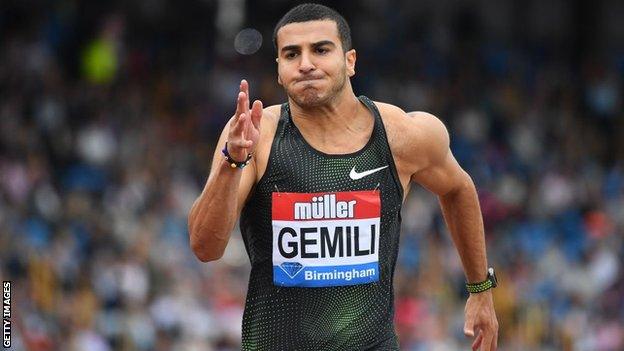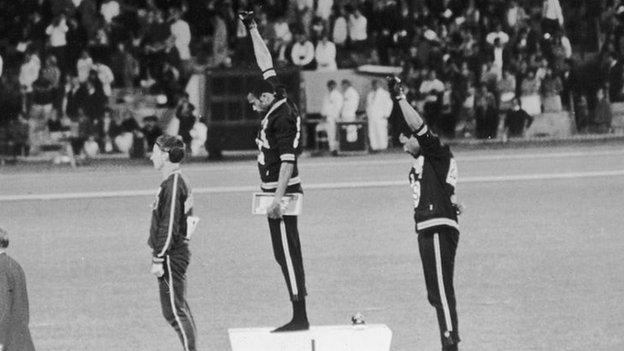Olympics: Adam Gemili criticises International Olympic Committee over protests stance
- Published

Adam Gemili is on the British Olympic Association Athletes' Commission
British sprinter Adam Gemili believes "all hell would break loose" if athletes are banned from holding protests at this summer's Olympics.
Current International Olympic Committee regulations do not allow protests to take place on the podium, field of play or at ceremonies during a Games.
However, Gemili accused the IOC of double standards and says he will take the knee in support of Black Lives Matter in Tokyo if he wins a medal.
"I'd definitely protest," said Gemili.
"I think it's a place where you should be allowed to express your opinion. I'd be very hypocritical if I've been talking all this talk and I wouldn't do that myself."

At the 1968 Olympics, American athletes Tommie Smith and John Carlos protested on the podium against the ongoing civil rights issues in America at the time
Gemili, a 4x100m world champion, said the IOC was being hypocritical for trying to ban protests when it has used images of 200m champion Tommie Smith at the 1968 Olympics raising his fist to protest about the ongoing civil rights issues in America at the time.
"This is what I don't understand, the IOC are so quick to use Tommie Smith, the picture of him, fist raised, but then they are saying 'actually, no one is allowed to do that'," he added.
"It doesn't make sense to me. I don't think you can ban an athlete for protesting and if they do all hell would break loose and it could go south and sour very quickly. They will be very naive to even try to do that.
"The Olympics is not a place to be political, it's a place for sport and to bring the whole world together but the whole Black Lives Matter movement is more than political.
"It's about being a good human and equal rights for everyone is not something which should be turned away so easily like they're doing."

That Peter Crouch Podcast: What goes on in the Premier League captains' WhatsApp group?
Just One More Thing: The simple home workout that is proven to boost your brain power
